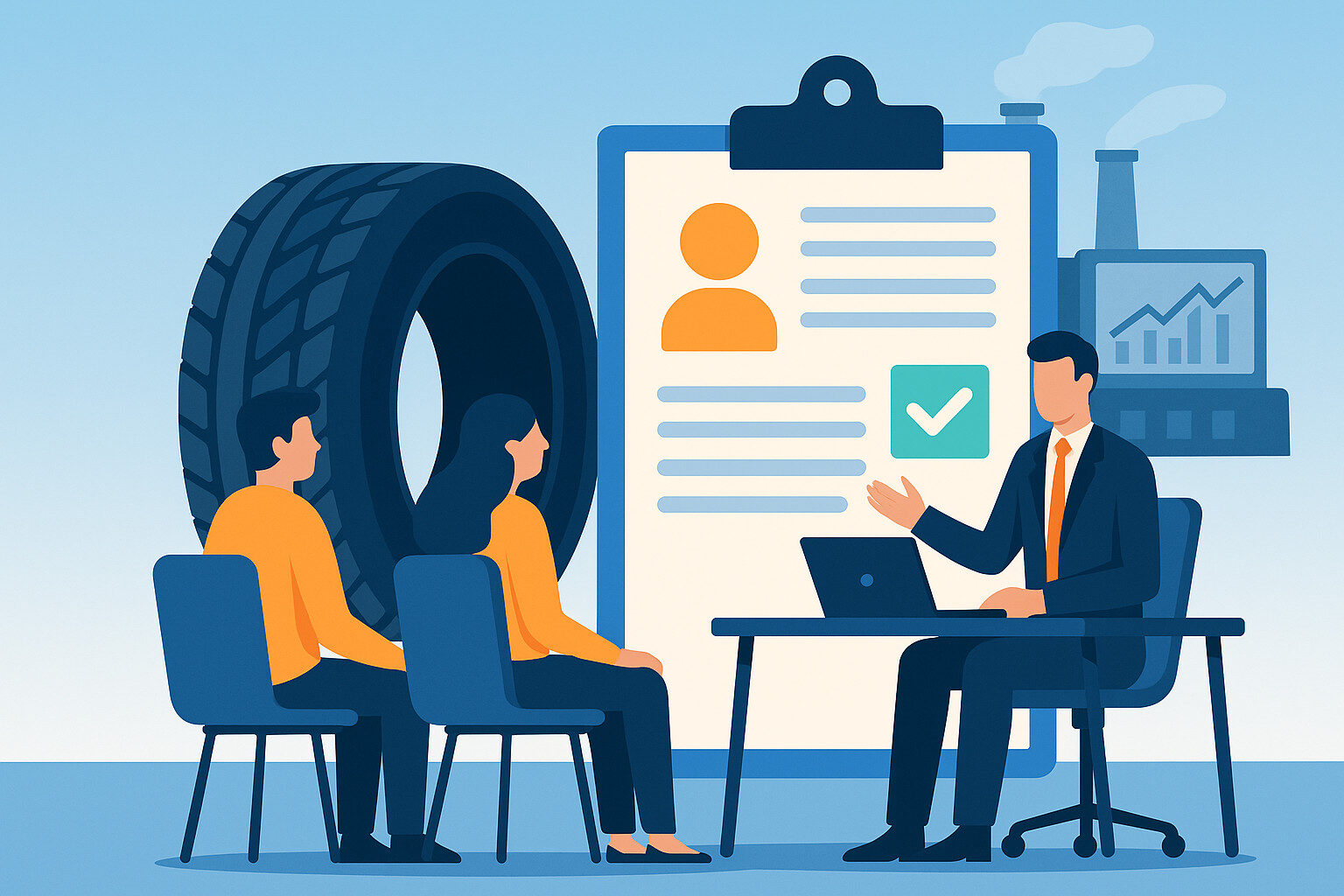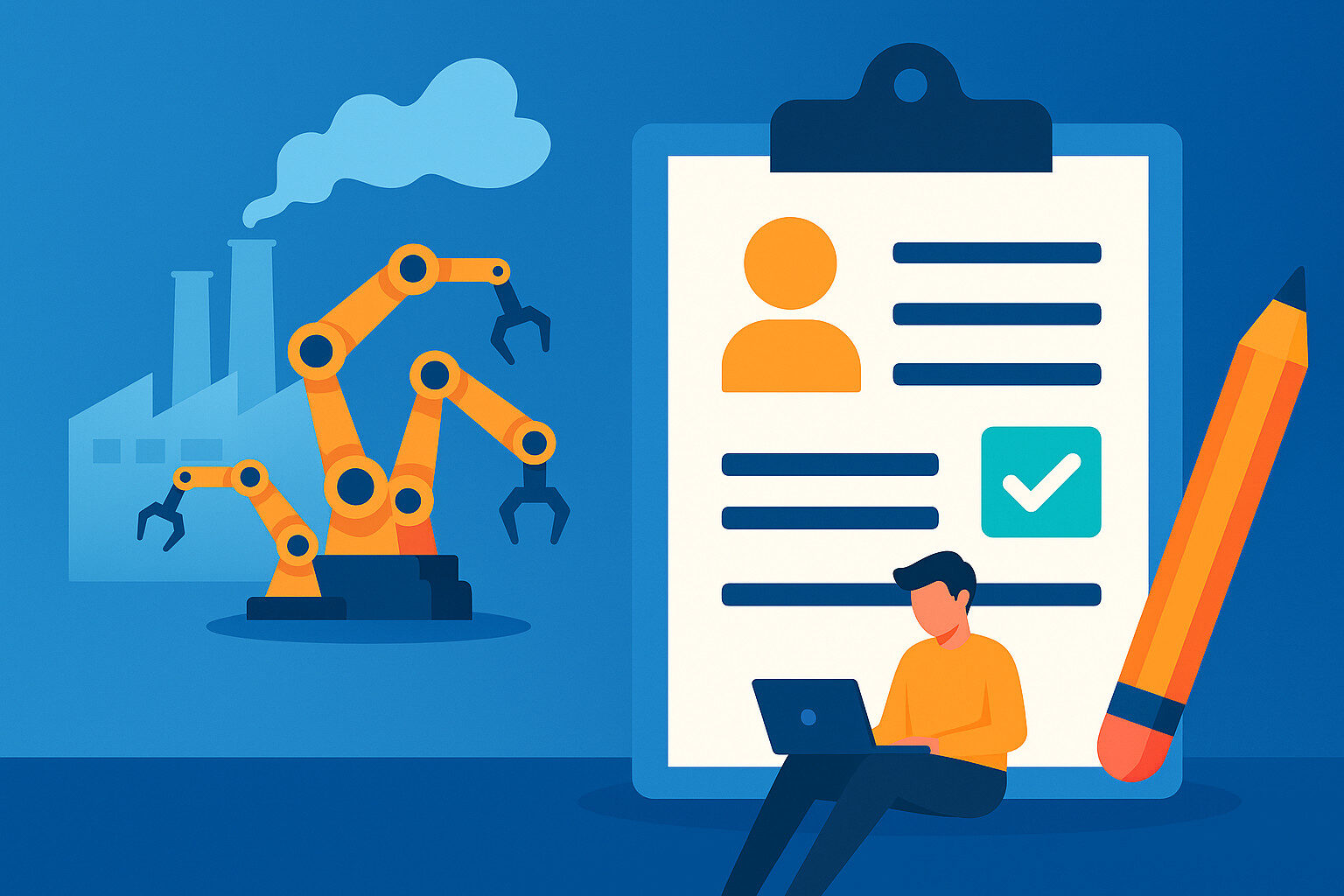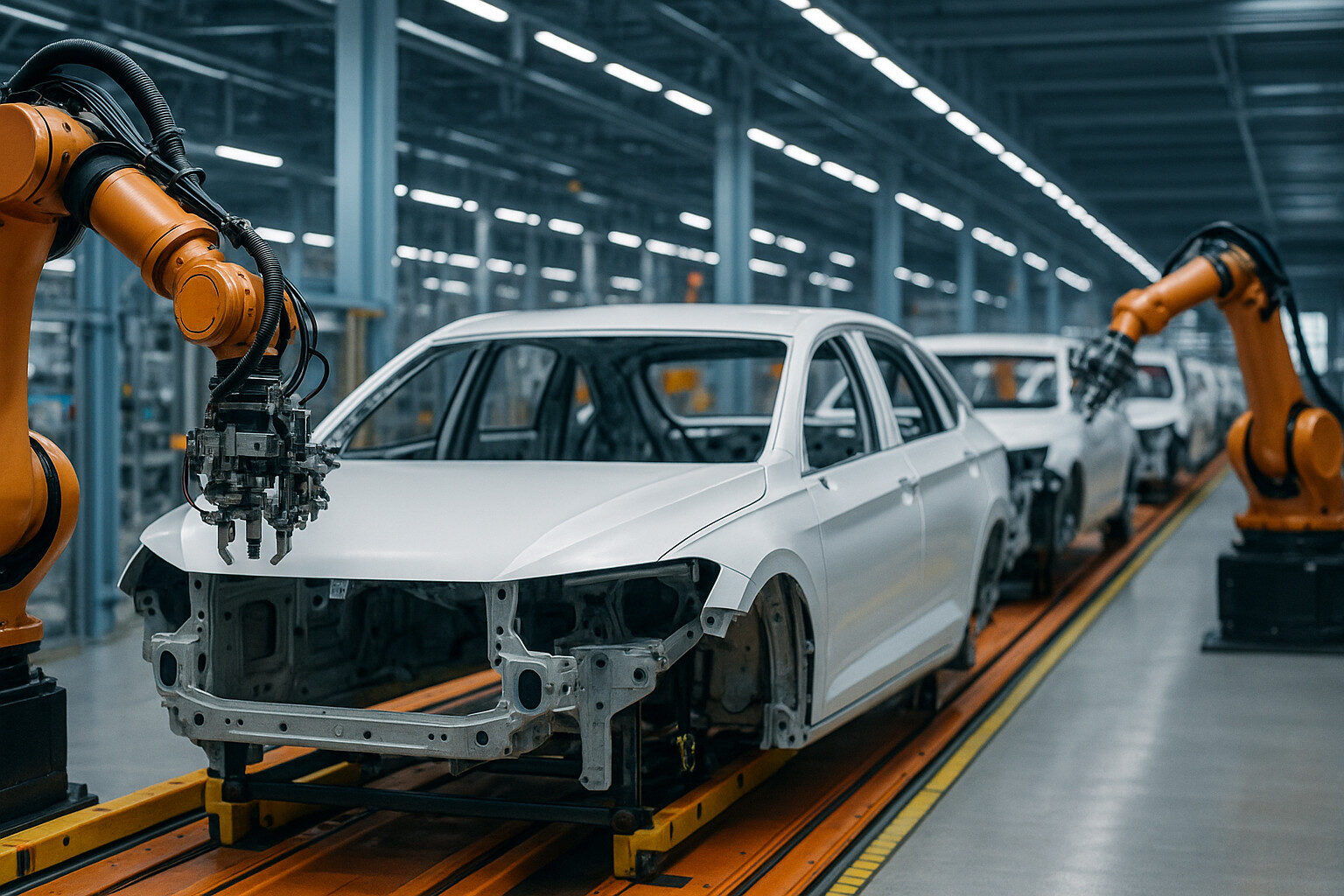In the U.S. manufacturing landscape, engaging with rubber industry human resource consulting services is no longer a luxury; it’s essential. As rubber companies face intensified competition, technological transformation, labor shortages, and evolving workforce expectations, expert human-resource services tailored for rubber companies can make the difference between stagnation and scalable growth.
This article will explore:
- The current state of the U.S. rubber industry and its workforce challenges
- Why rubber-specific HR consulting matters: compliance, recruitment, retention, culture
- Key services that rubber manufacturers need from HR consulting firms
- Data-driven insights into workforce and talent gaps in manufacturing rubber included
- How to select and implement HR consulting services effectively for your rubber company
- Real-world best practices and action steps you can take now
By the end of this post, you’ll understand the value of human-resource consulting for your rubber operations and be equipped to evaluate and apply these services to drive results.
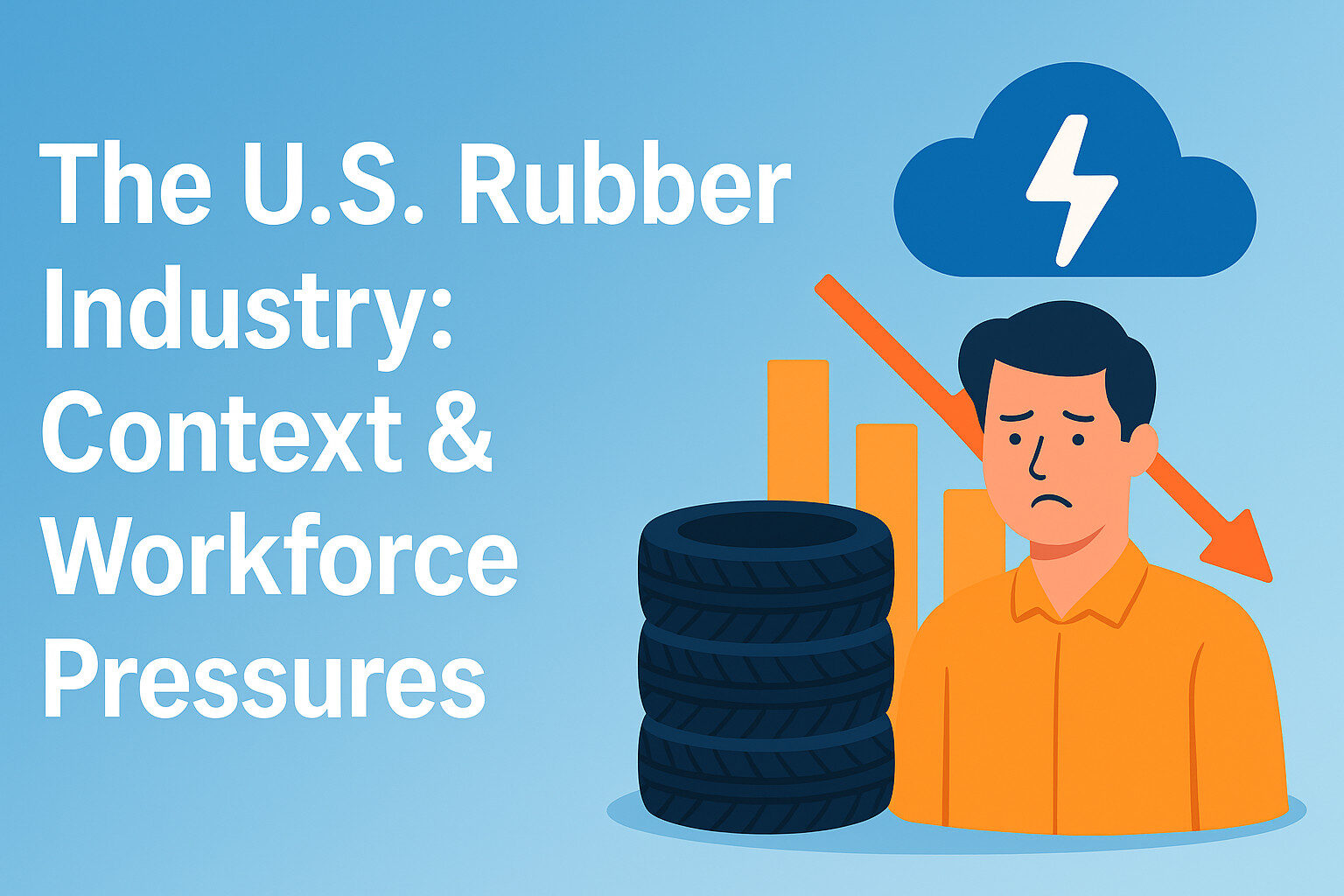
1. The U.S. Rubber Industry: Context & Workforce Pressures
The U.S. rubber industry, including tires, industrial rubber goods, and medical-grade rubber materials, continues to evolve rapidly. According to recent market analysis, the U.S. rubber sector is projected to grow steadily into the next decade, driven by EV production, infrastructure investment, and sustainable materials demand.
Yet, workforce challenges are mounting. A survey of U.S. manufacturers found nearly 70 % of HR leaders said labor shortages impact their ability to meet production demands, and 61 % reported they’re struggling to fill critical labor gaps. For rubber manufacturing companies, these challenges are amplified by specialized technical skills, shift work, heavy equipment, compliance burdens, and aging workforces.
In this context, traditional HR functions posting jobs and processing payroll are insufficient. Rubber manufacturers need strategic human-resource consulting that aligns talent management with business outcomes.
2. Why Rubber Industry HR Consulting Matters
Human-resource consulting services targeted at the rubber industry bring critical advantages:
2.1 Compliance & Risk Management
Rubber manufacturing faces compliance threats from environmental regulation, material safety, labor laws, and shift-work policies. HR consultants serve as strategic advisors to ensure policies, training, and processes meet these demands.
2.2 Strategic Talent Acquisition & Pipeline Development
Given skill gaps and recruitment competition, HR consulting firms help develop targeted recruiting strategies, candidate pipelines, and sourcing frameworks specific to rubber and polymer manufacturing.
2.3 Retention & Culture
High turnover and skill mismatch are costly. A study in the plastics and rubber sector found that effective HR practices significantly improve retention by aligning job design and job security with workforce expectations.
2.4 Organizational Efficiency & HR Process Optimization
Specialized HR consultants streamline hiring, onboarding, training, and performance management freeing internal leaders to focus on operations. For example, general manufacturing HR service providers emphasize reduced time-to-hire, improved compliance, and lower labor costs.
In sum: When a rubber company leverages HR consulting services, it gains a strategic partner that aligns human-capital strategy with operational performance.
3. Key HR Consulting Services Rubber Companies Require
Below are critical human-resource services for rubber manufacturers:
Recruitment & Talent Acquisition
- Industry-specific job description development
- Passive candidate sourcing (technical operators, compound engineers, maintenance techs)
- KPI-driven hiring frameworks
Onboarding & Development
- Structured 30-60-90-day plans
- Shift work & safety culture integration
- Skills development in polymer compounding, extrusion, tire manufacturing
Performance Management & Retention
- Competency frameworks aligned with rubber manufacturing operations
- Succession planning for specialized roles
- Workforce analytics: turnover, skill-gap mapping, cost per hire
Compliance & HR Operations
- Leave management, overtime regulation, multi-shift labor laws
- Environmental, health & safety (EHS) training aligned with rubber manufacturing
- HR policy audits and gap remediation
Culture & Engagement
- Change management for automation and digital transformation initiatives in rubber manufacturing
- Leadership development and supervisor training for specialized manufacturing teams
These are not generic services
they must be tailored specifically to the rubber industry’s demands, processes, and workforce characteristics.
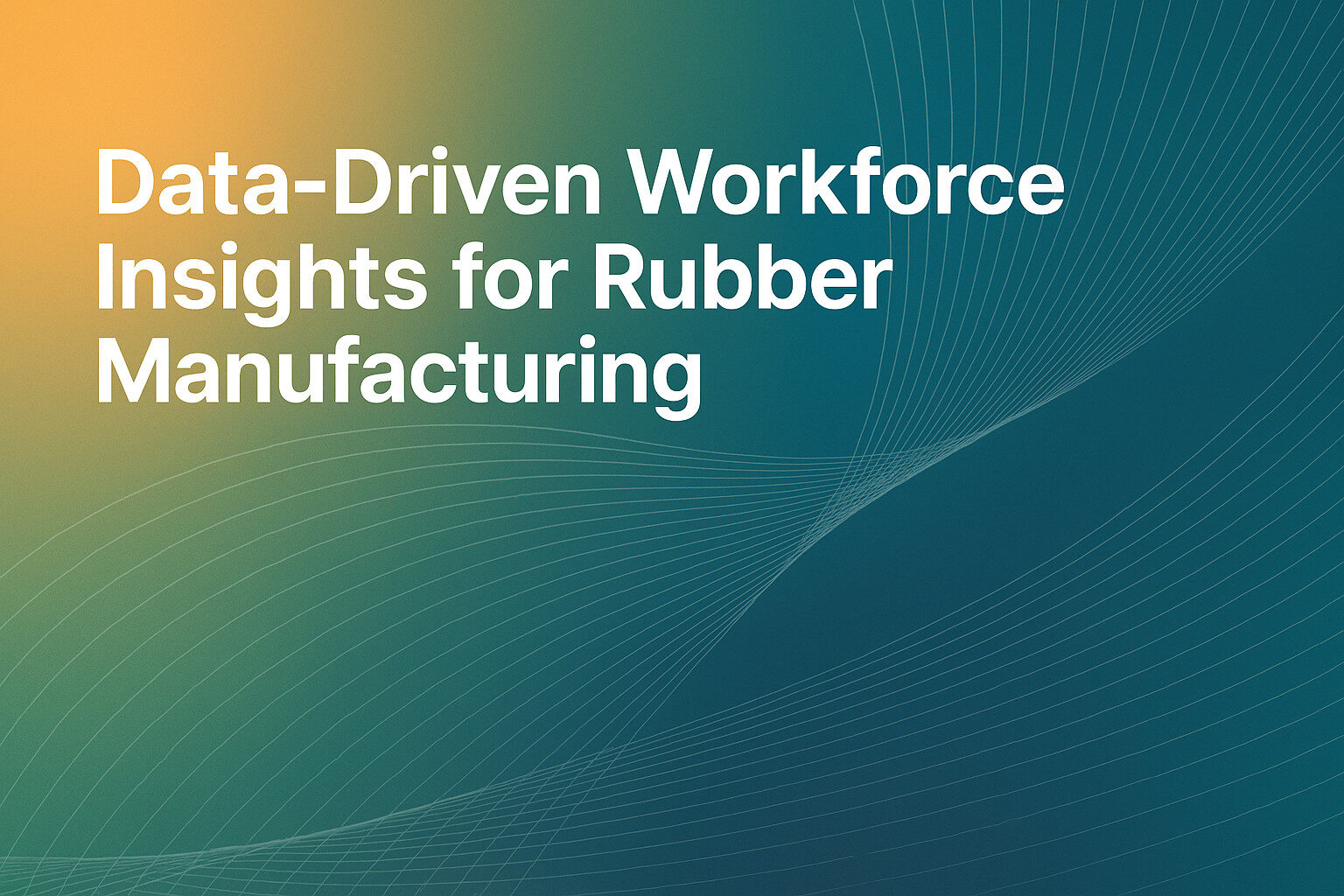
4. Data-Driven Workforce Insights for Rubber Manufacturing
Understanding quantitative indicators helps justify investment in HR consulting. Here are some noteworthy trends:
- Workforce shortages: In manufacturing broadly, 50 % of the top challenges are people-related, not technology.
- Though specific U.S. rubber manufacturing employment data is limited publicly, the broader manufacturing trend of difficulty filling critical roles applies directly. The inability to fill positions leads to production delays, quality issues, and increased costs.
- Skilled labor demand: For rubber‐industry firms developing advanced materials (e.g., EV tire compounds, high-performance industrial rubber), recruiting engineers and maintenance specialists with cross‐domain skills (mechanical + polymer + controls) is increasingly competitive.
By plotting these trends, you see the ROI of HR consulting: faster fill-rates, lower turnover, improved productivity.
5. How to Select & Implement HR Consulting Services for Your Rubber Company
Here’s a step-by-step guide to choosing and integrating HR consulting services:
Step 1: Diagnose Your Biggest Talent & People Gaps
- What roles are hardest to fill?
- What internal HR processes cause bottlenecks?
- What retention or turnover issues exist?
Step 2: Define Your Desired Outcomes
Align with operations: “Reduce time-to-fill for maintenance techs by 30 %,” or “Improve retention in compound engineering roles to 90 %.”
Step 3: Choose a Consulting Partner with Industry Expertise
Look for HR consulting providers who understand manufacturing and rubber/polymers specifically not just general HR.
Step 4: Customize the Service Scope
Bundle services: e.g., talent acquisition + onboarding + performance management. Ensure the provider delivers industry-specific frameworks.
Step 5: Implement in Phases & Measure Results
Start small if needed (pilot role or plant). Track metrics: time-to-fill, cost-per-hire, retention. Refine and expand.
Step 6: Embed Continuous Improvement
Use workforce analytics, conduct quarterly reviews, iterate HR systems to match evolving manufacturing needs (automation, sustainability, supply chain disruption).
6. Real-World Best Practices for Rubber Industry HR Consulting
- Create talent scorecards with KPIs aligned with business operations (e.g., first-year production targets, safety metrics).
- Use segment-specific job descriptions for rubber manufacturing roles (e.g., extrusion technician, compound engineer) that highlight industry-specific skills and growth opportunities.
- Build internal “talent networks” among vendors, distributors, and industry associations to access passive candidates.
- Implement onboarding rituals that reflect rubber manufacturing culture: safety walk-throughs, shift-team integration, continuous improvement training.
- Leverage HR analytics dashboards to monitor key metrics: turnover by role, time-to-full-productivity, retention after 12 months.
- Review compensation and benefits against industry benchmark especially for roles in advanced materials or EV-tire manufacturing workflows.
These practices are what separate operational HR from strategic HR in rubber manufacturing.
7. Conclusion
Human-resource consulting services tailored to the rubber industry are no longer optional they’re strategic imperatives. When your operations depend on specialized talent, safety compliance, shift complexity, and evolving technology, aligning your HR strategy with expert consulting can unlock efficiency, growth, and long-term resilience.
If you’re ready to assess your HR strategy or engage dedicated human-resource services for your rubber business, Talent Traction is ready to partner with you. We specialize in recruiting, HR consulting, and workforce strategy for rubber, plastics, tires, and allied industrial sectors across the U.S.
Let’s connect and explore how expert HR consulting can transform your human capital into a competitive asset.

